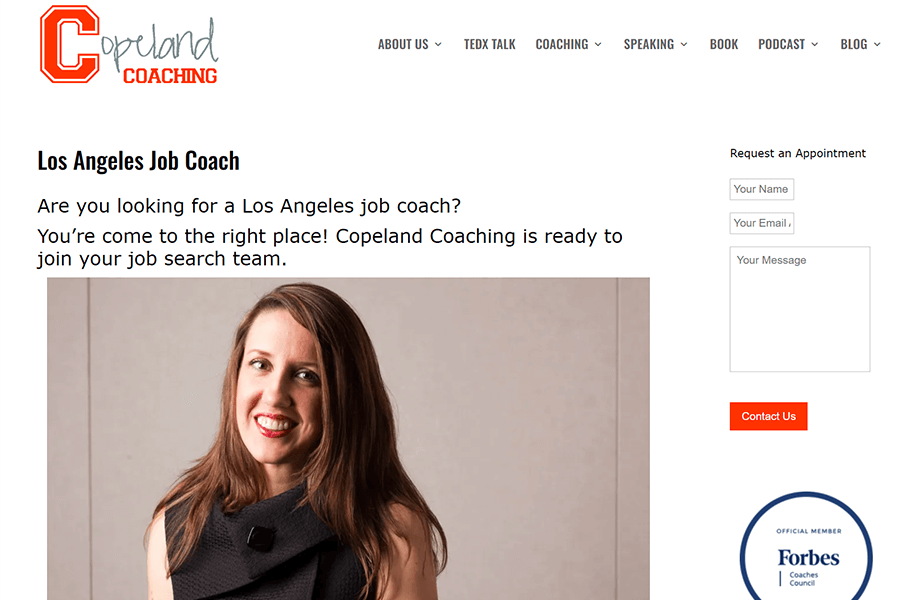3 Skills Required to Become a
Successful Career Coach
See also: Coaching Skills
According to a CNBC report, about 44% of job seekers with college degrees regret their field of study. That’s nearly half of all graduates who feel like they chose the wrong path, which leaves a huge opportunity for professional career coaches to step in.
While anyone can offer advice, becoming a successful career coach goes beyond just giving pointers. It involves guiding individuals to tap into their full potential and helping them to build a fulfilling career through impactful and sustainable coaching practice.
To stand out and succeed in this field, relying only on good instincts won’t cut it. You need to develop specific skills that will position you as an expert and ensure you consistently attract and retain clients.
In this article, we explore the three essential skills every successful career coach needs to stand out.
3 Most Important Skills of a Successful Career Coach
Ready to become a career coach? These critical skills will turn you into the go-to guide for anyone looking to transform their career.
1. Research
To become a career coach, you must know how to do research. Why?
Great coaching requires extensive knowledge. You shouldn’t stop at what you already know. Career trends and industries change, technologies evolve, and new opportunities emerge from time to time. If you're not keeping up with these changes through research, you’ll fall behind.
A successful career coach isn’t a jack of all trades. You need to be a strategic thinker. Hence, pick a coaching niche where your expertise shines. That’s where you’ll focus all your research.
For example, if you have practical experience in the tech industry, becoming a career coach for tech professionals or startups might be your sweet spot. The more focused you are, the better you can serve your coaching clients. They’ll see you as the go-to expert in your niche, rather than someone who dabbles in multiple industries.
Developing research skills isn’t that hard if you’re a naturally curious person. If you’re not, you can develop that trait just by asking yourself “how” at all times. You met an established career coach? Ask yourself how they succeeded in the field.
You found an article about your competitor’s satisfied career coach client? Ask yourself how they reached that level of satisfaction.
When you consistently ask questions, you’ll get the motivation to find the answers you’re looking for. Determining where to find those answers is the hard part.
The easiest way is to go to Google and type in your query. But you can also go directly to the source to get your answers. For instance, if you want to learn how a specific career coach became successful, you can send them an email directly asking them for actionable advice.
Don’t just learn how to research the basic coaching skills and knowhow that make one succeed in the field. Maintaining an up-to-date industry knowledge base is equally essential.
Once you’ve developed your research skills, you’ll never run out of sources of information to help you grow as a career coach. This continuous learning, in turn, positions you as an authority and gives your client base the confidence that you are better equipped to guide them through business transformation or professional growth.
2. Presentation
Effective communication is the backbone of any coaching relationship. Even if you're armed with the latest knowledge, it won’t matter unless you can present it effectively. Presentation goes beyond public speaking. It includes how you communicate with your clients at every touchpoint, from one-on-one coaching sessions to emails and digital content.
In general, to excel in presentation, you’ll need to learn how to:
Communicate Well: This involves asking the right questions and listening actively to help clients find solutions. Clients appreciate a coach who helps them think, rather than one who tells them what to do. This fosters a sense of ownership and empowerment in their career journey.
-
Leverage Non-Verbal Cues: This involves structuring your tone of voice and body language to complement what you’re saying. These non-verbal signals are just as important as what you say.
Develop Soft Skills: Soft skills that are key to effective presentation include empathy, patience, and adaptability. They allow you to read the room and effectively tailor your approach based on the client’s unique needs.
Create High-Quality Presentation Content. Your slides, proposals, and presentation emails contribute to your professional image, so you should know how to craft these, too.
Learning to create content also involves knowing the best cost-effective tools to use to help you craft specific pieces. For instance, you should know that a free conclusion generator can help you create just-as-engaging presentation endings as a paid tool. A paid graphics tool that falls within your budget, on the other hand, is probably your best bet if you want a great design for your presentation. You should also learn how to use these tools, of course.
You can develop your presentation skills just by practicing all the above. But if you have the budget, enrolling in a relevant course can help. You can look for courses on sites such as Udemy and Skillshare.
3. Marketing
To become a career coach, you need marketing to build a sustainable business. After all, you can’t help people if they don’t know you exist.
You’ll need to know how to connect with people on social media platforms like LinkedIn. Knowing how to leverage paid ads, email campaigns, social media, and content marketing can also help you maximize your online presence and reach a wider audience.
Email marketing remains one of the most effective ways to engage leads and nurture leads. You should know how to build an email list and create regular newsletters with career tips, industry updates, and customer success stories for sharing.
A well-structured landing page is another must-have in your marketing toolkit. It’s the first impression potential clients get and should be designed to capture their attention and contact details. You should learn how to craft a landing page so it clearly outlines your services, showcases testimonials, and includes a compelling call to action.

Learn local SEO to optimize your landing pages, too. See how this career coach optimized her landing page with the Los Angeles Job Coach? This helps people searching for successful coaches in that area to find her online.
Finally, gain some knowledge about analytics. You’ll need to learn how to read marketing data and use it to optimize your marketing strategies.
There are marketing courses and training programs you can enroll in online. Don’t forget to read posts like this one on setting up sales funnels for coaches.
Conclusion
Becoming a great career coach means going beyond advice and truly helping people achieve their dream career or business. This entails knowing how to do some research to stay up to date with coaching trends and refining your expertise. You’ll also need to know how to communicate clearly to inspire confidence. Marketing skills, meanwhile, can help you in promoting your coaching business.
You can just enroll in courses and read online resources to develop the skillset you need.
With these skills in your toolkit, you're well on your way to helping clients achieve their career aspirations or business dream, while also growing your business.
About the Author

Meet Michal Leszczynski, Head of Content Marketing and Partnerships at GetResponse. With 10+ years of experience, Michal is a seasoned expert in all things online marketing. He’s a prolific writer, skilled webinar host, and engaging public speaker. Outside of business hours, Michal shares his wealth of knowledge as an Email Marketing lecturer at Kozminski University in Warsaw. You can reach out and connect with Michal on LinkedIn.
